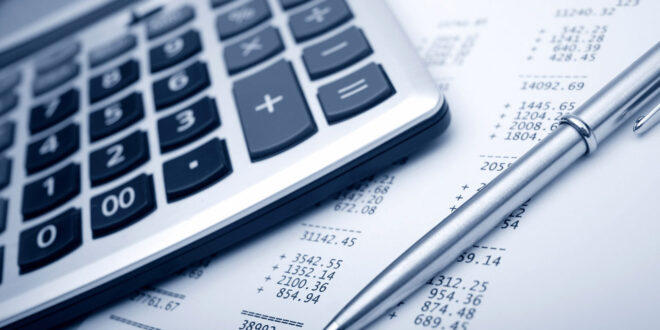Each year, thousands of accountants attempt to take the CPA exam to earn their formal certification as a public accountant. If they pass, they’ll increase their earning potential, put themselves in a position to earn promotions and better clients, and ultimately better support their long-term career.
However, only 54.7 percent of people pass the CPA exam their first time. The CPA exam is difficult, and if you want a better chance of passing it, you’ll need to use the right strategies.
Why the CPA Exam Is Hard to Pass the First Time
So why is the CPA exam so hard to pass in the first place?

- Intentionally difficult design. The CPA exam isn’t hard by accident; it’s an intentional move to make sure the certification means something. If 100 percent of people taking the exam pass it the first time, the certification isn’t impressive – it also means at least some people with zero accounting experience may be able to pass.
- Lack of experience. Some people simply don’t know what they’re in for. They don’t know what kinds of questions will be asked or what the test environment will look like. This makes the first time taking the exam especially challenging.
- Lack of preparedness. And of course, some people don’t prepare enough for their first time taking the exam. They skip studying, glossing over the basics, and hoping that’s enough to get them a pass.
How to Pass the CPA Exam
Are you interested in passing the CPA exam the first time?

- Start early. The most important tip is to start as early as possible. You’ll often know the date of your exam months in advance, so you should have plenty of time to learn and review the information necessary to pass. It’s better to study a little bit each day than to try and cram a few days of mega-studying into the week before the exam. Slow and steady wins the race here.
- Use a CPA course. According to Wiley Efficient Learning, one of the best ways to prepare for the CPA exam is with a formal CPA exam course. A CPA study service like this will guide you through interactive lessons, teaching you everything you need to know for the exam and preparing you for the different sections that exist. You’ll also get direct coaching and hands-on experience with practice exams so you can feel confident going into the real deal.
- Study both alone and with others. It’s a good idea to study in a group, at least occasionally, since you’ll get to see the material through the eyes of others (not to mention have more fun and stay accountable to your study schedule). But studying alone also has advantages; try to do both.
- Understand the structure of the exam. Next, understand the structure of the exam. The CPA exam unfolds over four distinct sections, each of which will test your knowledge and skill in different areas; familiarize yourself with all of them.
- Know your main areas of weakness. Chances are, you’re not going to nail every section or feel confident with every subject. It’s important to identify your main areas of weakness and work them out, preferably long before your exam date.
- Take practice exams. It’s a lot easier to prepare when taking practice exams. These study tools will look and feel like the real thing – giving you a chance to put all your newfound knowledge to the test.
- Mentally prepare for exam conditions. For many people, walking into a test environment is stressful – and that can interfere with your performance. Mentally prepare for this by visualizing yourself in a test environment and using meditation or calming exercises to focus.
- Get a good night’s sleep the night before. The night before your scheduled exam date, make sure you get a good night’s sleep. You’ll feel less stressed and have more alertness you can bring to the exam. Your recall may also benefit.
- Eat breakfast and plan a stress-free morning. While you’re at it, make your morning as stress-free as possible. Eat a full breakfast, get some coffee, exercise if you can, and get to the exam location with plenty of time to spare.
- Read each question carefully. While taking the exam, make sure you read every question carefully. Sometimes, tricky wording can throw you off or mislead you into answering the question incorrectly.

What to Do If You Don’t Pass
Even if you follow these tips, there’s no guarantee that you’re going to pass the first time you take the CPA exam (though you can greatly increase your chances). If you don’t pass, you’ll have another opportunity. Follow these tips if you find yourself in this position.
- Don’t beat yourself up. First, don’t beat yourself. After a crushing failure, it’s natural for people to feel embarrassed, ashamed, or otherwise negative about the experience. You have to resist this temptation. Instead, focus on what you did well and prepare for another attempt.
- Figure out what you got wrong (and right). What prevented you from passing the exam? Do you know which questions you missed? Which topics or sections of the exam were most difficult and why did you struggle with these? The more you figure out, the better.
- Analyze your approach. How could your approach have been better? Could you have started studying earlier? Could you have tapped into different resources? Are there different studying methods you could have tried?
- Learn and study in new ways. You’ll definitely want to try a new approach if you failed the CPA exam the first time. The nature of that new approach is totally up to you. You could try studying with a professional, studying with different techniques, or investing in new study materials. Keep experimenting until you find something that works.
Don’t worry. Even if you don’t make it the first time, you can always learn from your mistakes and try again. Failing all or part of the CPA exam may feel defeated, but it’s only a temporary roadblock on your way to success.
 World Magazine 2024
World Magazine 2024






